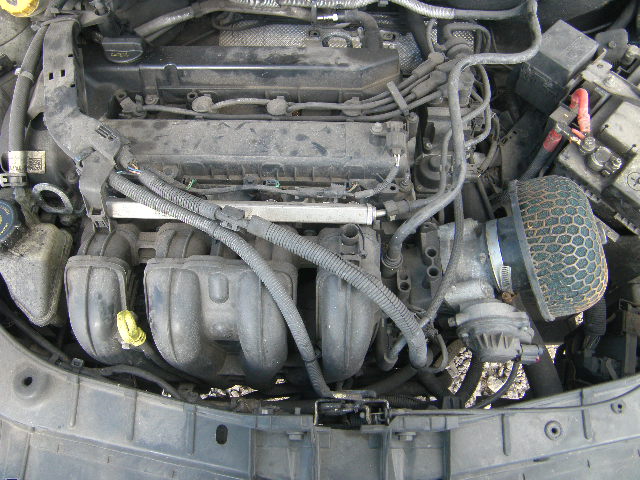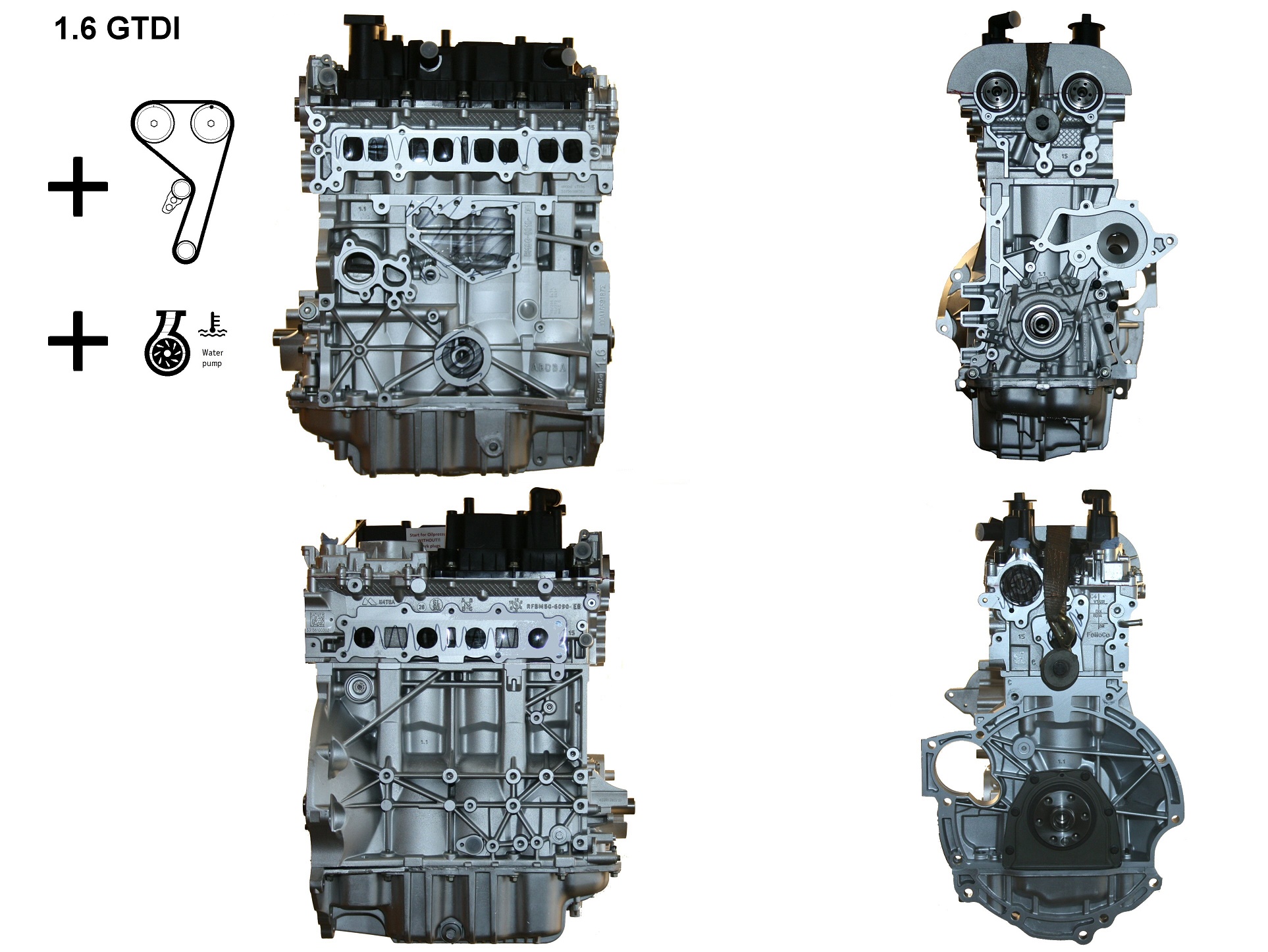What to Look for When Buying a Used Ford Fiesta Engine
What to Look for When Buying a Used Ford Fiesta Engine
Blog Article
The Future of Engines: Advancements Driving Sustainable Power Solutions
As the auto sector browses the imperative shift towards sustainability, the future of engines is progressively specified by groundbreaking advancements. Electric engine advancements, together with promising developments in hydrogen fuel cells and biofuels, are reshaping the landscape of power services. The development of crossbreed systems even more complicates this advancement, offering both obstacles and possibilities to lower emissions properly. Paired with the assimilation of synthetic intelligence in engine style, these technological strides increase vital concerns regarding their lasting practicality and effect on traditional paradigms. What might this mean for the sector and customers alike?
Electric Engine Developments
The evolution of electric engine developments signifies an essential shift in the aerospace and auto sectors, driven by the immediate need for sustainable alternatives to nonrenewable fuel sources. This transition is identified by significant improvements in battery technology, power electronics, and electrical motor layout, which collectively enhance the effectiveness and performance of electrical engines.
Current advancements have resulted in the development of lighter, extra energy-dense batteries, such as lithium-silicon and solid-state batteries, which assure longer varieties and shorter charging times. Furthermore, improvements in electric motor performance, such as using irreversible magnets and advanced cooling systems, allow electrical engines to operate properly under differing problems. These improvements not only improve car efficiency yet likewise add to a reduction in general power usage.
Moreover, the combination of advanced software formulas has actually enhanced energy administration in electrical lorries, permitting regenerative stopping and predictive charging approaches. As producers progressively welcome electrical propulsion, the auto and aerospace markets are experiencing a paradigm change in the direction of greener modern technologies. This development not just meets governing demands however likewise lines up with consumer preferences for environmentally pleasant transportation services, solidifying electrical engines as a cornerstone of future lasting movement.
Improvements in Biofuels
As the vehicle and aerospace industries progressively focus on sustainable power sources, developments in biofuels become a corresponding remedy to electrical engines. Biofuels, originated from organic materials such as plants, waste, and algae, present a cutting-edge opportunity for decreasing greenhouse gas emissions and reliance on nonrenewable fuel sources.
Current research study has concentrated on enhancing the performance and sustainability of biofuel manufacturing. Second-generation biofuels utilize non-food feedstocks, decreasing competition with food supply and lowering ecological impact. Improvements in artificial biology have actually made it possible for the design of microorganisms to create biofuels a lot more effectively, leading to higher returns and lower manufacturing expenses.
In addition, the growth of drop-in biofuels permits for smooth assimilation right into existing framework, making it possible for a smoother change for industries typically depending on nonrenewable fuel sources. ford fiesta engine. These fuels can be made use of in current engines without adjustments, promoting their adoption across different markets
Investments in biofuel modern technology, along with encouraging plans, are important to drive innovation and scalability. As the global area seeks to deal with environment modification, biofuels offer a practical, instant option that straightens with the overarching goal of sustainability in transportation and aeronautics.
Hydrogen Fuel Cell Innovation
A growing variety of firms and scientists are exploring hydrogen gas cell technology as a sensible option to traditional power sources in basics transport and energy systems. This technology transforms chemical energy from hydrogen into electricity via an electrochemical reaction, with water as the only by-product, making it an environmentally pleasant option.
The core of hydrogen gas cells is the fuel cell stack, where hydrogen particles are split right into protons and electrons. The flow of electrons creates electrical energy, while protons move with a membrane layer to integrate with oxygen from the air, developing water. This process causes high efficiency and reduced exhausts, placing hydrogen gas cells as an important player in the shift to sustainable power.
Significant improvements have been made in enhancing the toughness and efficiency of fuel cells, along with reducing expenses through ingenious production techniques. Additionally, the development of hydrogen production techniques, such as electrolysis powered by renewable resource sources, boosts the sustainability of the total system. As framework for hydrogen refueling expands and production techniques come to be more efficient, hydrogen fuel cell technology holds terrific pledge for decarbonizing numerous fields, including sturdy transportation and fixed power generation.
Crossbreed Equipments and Their Impact
Hybrid systems represent a significant evolution in sustainable engine technology, merging typical inner combustion engines with electrical propulsion to enhance energy efficiency and lower discharges (ford fiesta engine). This double dig this method allows vehicles to make use of both power resources, enabling higher versatility in energy intake and reducing reliance on fossil fuels

In addition to ecological advantages, hybrid systems use consumers a practical change towards totally electrical automobiles. They minimize variety stress and anxiety by integrating the comfort of gasoline with the benefits of electrical propulsion, making them an attractive option for a larger audience.
The Role of AI in Engine Layout
Leveraging innovative formulas and artificial intelligence strategies, the vehicle sector is progressively integrating expert system (AI) into engine layout procedures. AI improves the effectiveness and efficiency of design by analyzing substantial datasets to recognize ideal setups and performance criteria. This ability permits designers to replicate various operating problems and predict engine behavior under numerous situations, considerably decreasing the moment and price related to traditional prototyping approaches.
Additionally, AI assists in the development of innovative materials and burning procedures tailored for sustainability. By enhancing gas efficiency and minimizing discharges, AI-driven styles straighten with international initiatives intended at reducing the carbon footprint of automotive engines. Machine understanding algorithms can likewise forecast maintenance demands, resulting in boosted reliability and longevity of engine parts.
Furthermore, AI is crucial in the integration of electrification innovations, such as crossbreed systems, where it can optimize battery administration and power recovery processes. As the market relocates towards more sustainable power options, the role of AI in engine style ends up being significantly vital, driving technology and improving the performance of future engines. Eventually, the collaboration between AI and engine style proclaims a brand-new age of smarter, cleaner, and extra efficient automotive innovations.

Conclusion
In conclusion, the future of engines is being shaped by a convergence of innovative technologies that read the full info here prioritize sustainability. Electric engine advancements, biofuel growths, hydrogen gas cells, and crossbreed systems collectively contribute to a considerable reduction in emissions and ecological impact.
Electric engine improvements, along with appealing growths in hydrogen fuel cells and biofuels, are reshaping the landscape of power services. Furthermore, enhancements in electric motor performance, such as the usage of long-term magnets and progressed cooling down systems, allow electric engines to run properly under differing conditions. By optimizing gas effectiveness and minimizing emissions, AI-driven layouts line up with global campaigns aimed at reducing the carbon impact of vehicle engines. As the industry relocates towards even more lasting power services, the duty of AI in engine style becomes progressively important, driving innovation and improving the performance of future engines. Electric engine improvements, biofuel developments, hydrogen gas cells, and hybrid systems jointly add to a considerable decrease in emissions and ecological influence.
Report this page